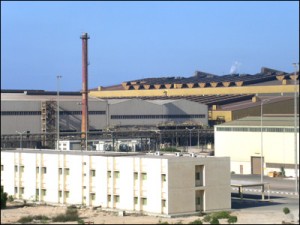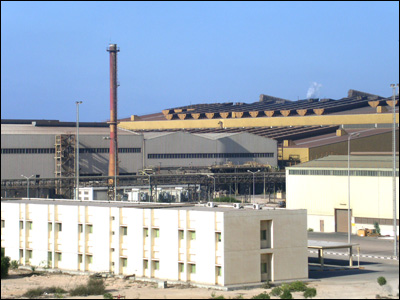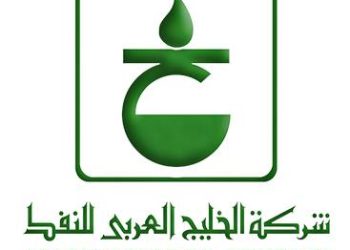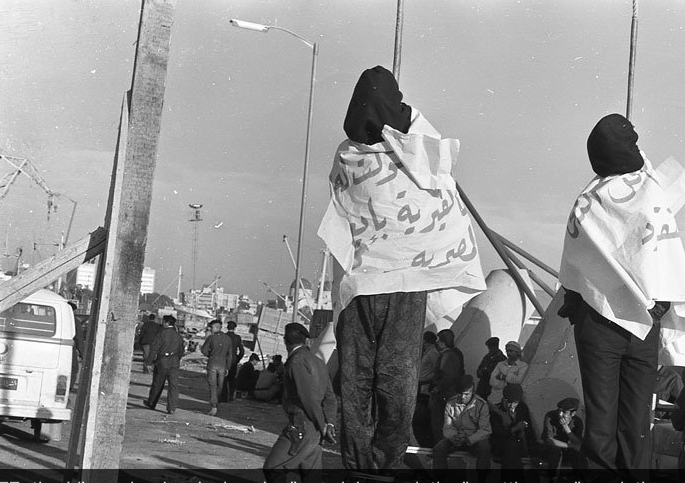Tripoli, 22 June:
The Misrata-based Libyan Iron and Steel Company (LISCO) has now resumed most of its steel production a year . . .[restrict]after it suspended operations, meaning a return to work for many of its 6,500 employees.
Work has been going on since December to make essential repairs among the seven plants that were damaged by both shellfire and sabotage during the battle for Misrata.

During the fighting LISCO’s warehouses were tapped by revolutionaries to build steel-plated, gun-mounted vehicles known as ‘Technicals’ as well as some light weapons.
Steady improvements to the energy supply have meant that Steel Melt Shop Number 1 has been able to resume liquid steel-making operations at two of its three electric arc furnaces (EAFs).
The EAFs will initially be fed with domestic scrap metal and the remaining stock of direct reduced iron (DRI) pellets. A shipload of ore pellets is however expected shortly. Since steel-making production was suspended in February 2011, the company had been waiting for adequate energy sources to become available to support the energy-intensive steel melting process.
In January this year the No. 2 rebar mill was restarted. Rebar (reinforcing bar) is an important construction product and is in great demand for the rebuilding currently underway across the country.
?State-owned LISCO, one of the largest steel companies in North Africa, was established in 1979 and has an annual production capacity of 1,324 million tons of liquid steel. The works has a dedicated port able to handle 2,000,000 tons of raw material annually, two steel melting shops and a power and desalination plant.
In its steel processes, LISCO uses imported iron ore pellets from Brazil, Canada and Sweden and domestic natural gas. Its major products include DRI or sponge iron, hot-briquetted iron (HBI), which is a compacted form of DRI, and reinforced steel and rods. HBI had been one of Libya’s principal exports since production commenced in 1997 at the LISCO II facility, accounting for over 50% of the company’s overseas sales. Before February 2011, over 60% of LISCO’s output was exported to Europe, other Middle Eastern countries and China.
In November, LISCO’s technical director Dr Mohamed Abdul Malik Elfighi was promoted to chairman of LISCO, taking over from Dr Muhammad Mahmoud Al-Fteissi who was appointed as industry minister in the transitional government.
In 2010, it was proposed to list ten percent of LISCO’s shares on the Libyan Stock market and Egyptian investment, EFG Hermes was mandated to handle the offer.
[/restrict]









